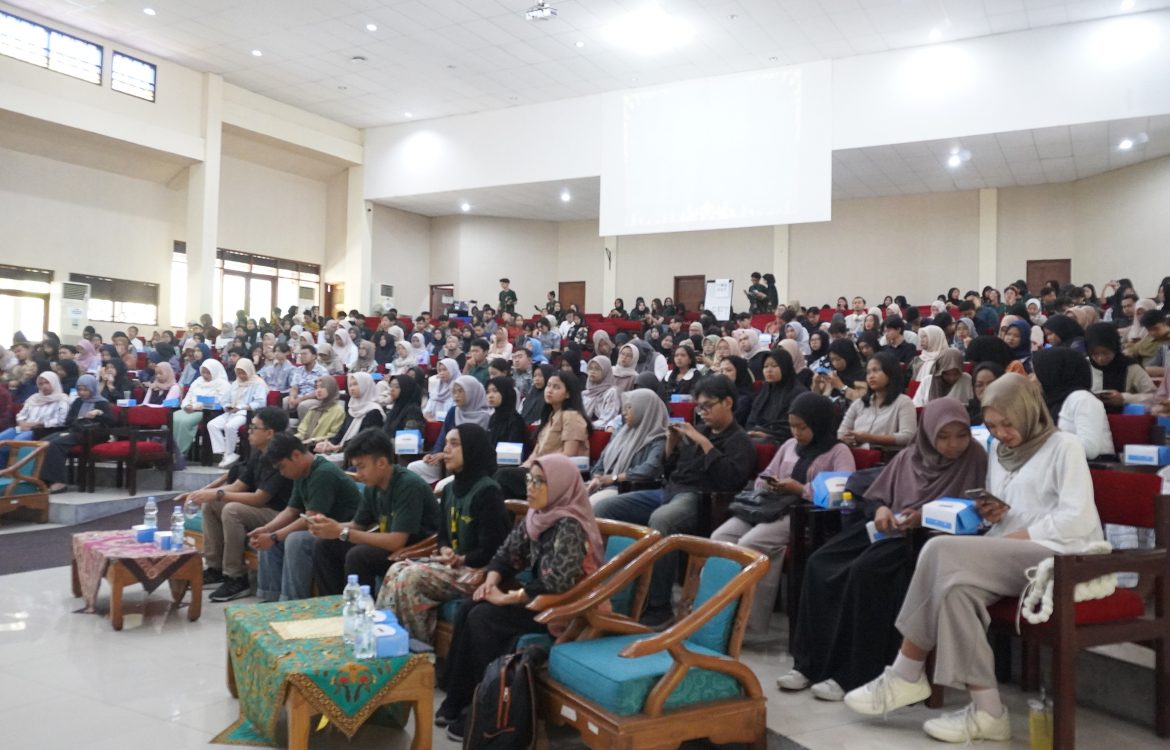
Over 300 Participants Join National Seminar on Empowering Youth Potential to Advance the Circular Economy through Social Media and Culture
Student Association of Development Economics Study Program, Faculty of Economics and Business (FEB), Universitas Sebelas Maret (UNS), organized the 18th Annual Conference of Economics Forum 2024 (ALCOFE) on Wednesday, October 2, 2024, at the Suhardi Hall FEB UNS. The National Seminar, under the grand theme “Empowering Youth Potential to Advance the Circular Economy through Social Media and Culture,” attracted over 300 participants.
 The event featured notable speakers, including Dr. Anto Prabowo, MBA., Senior Advisor and Deputy Commissioner of Human Resources Operations at the Financial Services Authority; Anindytha Arsa, Edu-Content Creator and Special Advisor to the Ministry of Youth and Sports; and Rifal Afandi, President of GenBI Solo.
The event featured notable speakers, including Dr. Anto Prabowo, MBA., Senior Advisor and Deputy Commissioner of Human Resources Operations at the Financial Services Authority; Anindytha Arsa, Edu-Content Creator and Special Advisor to the Ministry of Youth and Sports; and Rifal Afandi, President of GenBI Solo.
Muhammad Yusuf Indra Purnama, S.E., M.Rech., Ph.D., Head of the Bachelor of Development Economics Program, highlighted in his opening remarks that the seminar’s theme is highly relevant in today’s context.
“We are discussing sustainable economics, the role of youth, and the influence of social media and culture. Our cultural diversity is one of the strengths of our nation. This diversity often becomes a key driver for innovation,” he explained.
He further emphasized that while the circular economy has been widely discussed, this seminar offers students a valuable opportunity to learn directly from the speakers.
 Unlike the linear economic approach, which views the economy as a conventional cycle of producing, using, and discarding waste, the circular economy focuses on sustainability and innovation. He also pointed out the critical role of social media in spreading awareness and promoting circular economy practices across all levels of society.
Unlike the linear economic approach, which views the economy as a conventional cycle of producing, using, and discarding waste, the circular economy focuses on sustainability and innovation. He also pointed out the critical role of social media in spreading awareness and promoting circular economy practices across all levels of society.
 Additionally, he reminded the participants that the nation has an important capital related to the cultural wealth. He then, encouraged students, as agents of change, to utilize information platforms and social media effectively to advocate for these initiatives, considering the vast role of social media and digital campaign.
Additionally, he reminded the participants that the nation has an important capital related to the cultural wealth. He then, encouraged students, as agents of change, to utilize information platforms and social media effectively to advocate for these initiatives, considering the vast role of social media and digital campaign.
“I urge all participants to use this forum as an opportunity to exchange ideas and put forward questions relevant to today’s speakers. Let’s ensure the insights gained here extend beyond this hall. Sustainability in economics doesn’t stop at the classroom or seminar—it’s about individual contributions, whether it’s waste management or extending production chains to optimize resource use,” he concluded.
Tastaftiyan Risfandy, S.E., M.Sc., Ph.D., Vice Dean for Student Affairs and Alumni FEB UNS, echoed the sentiment, emphasizing the importance of collaboration among government, industries, and youth in advancing the circular economy.
“Promoting positive initiatives like the circular economy is crucial. The more we amplify this message, the greater the chance it reaches policymakers, leaders, members of parliament, ministers, and even the president, paving the way for sustainable policies,” he remarked.

